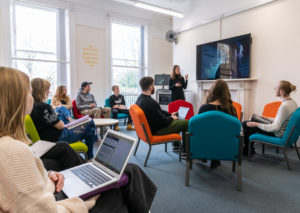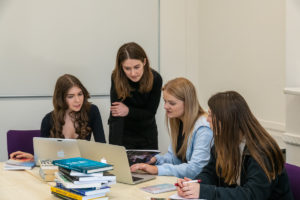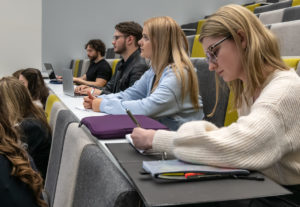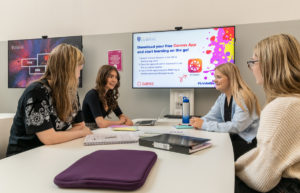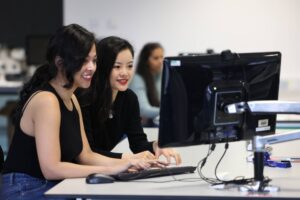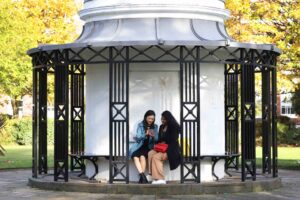How you'll learn
Communication and Media: Weekly lectures and seminar discussions may be supplemented by screening sessions, presentations and opportunities for group work where appropriate. We regularly invite expert speakers and practitioners to speak to our students about their work. Some modules also make use of our specialist equipment or software.
Dissertation and work placement modules involve more independent study, but always under the careful individual supervision of a member of academic staff.
Politics: Research-connected teaching is initiated in the first year with introductions to quantitative, qualitative, theoretical, and critical methodologies, which are then embedded in second- and final-year modules so that students can evaluate and apply the methodologies to construct their own analyses. Though our lectures are interactive, our seminars, workshops, computer lab sessions, dissertations, and placements form the core of our active learning approach.
How you're assessed
Communication and Media: We are committed to using a range of different forms of assessment, so types of assessment vary widely from module to module. Depending on your choice of modules, these may include coursework projects, essays, blogs, reports, literature reviews, writing exercises, presentations, online tests and unseen examinations.
Politics: We use a rich variety of assessment methods to develop students’ various skills. Essays, exams, and presentations enable to students to practice core academic writing and speaking skills, while innovative assessments such as blog posts, reflective logs, group projects, podcasts, radio broadcasts and speeches expand our authentic assessment, enabling students to deploy transferable skills in various formats. Digital fluency is also developed in different ways, including sourcing relevant material, using online learning platforms and tools, producing audio and visual materials, word processing and statistical analysis.
Liverpool Hallmarks
We have a distinctive approach to education, the Liverpool Curriculum Framework, which focuses on research-connected teaching, active learning, and authentic assessment to ensure our students graduate as digitally fluent and confident global citizens.
The Liverpool Curriculum framework sets out our distinctive approach to education. Our teaching staff support our students to develop academic knowledge, skills, and understanding alongside our graduate attributes:
- Digital fluency
- Confidence
- Global citizenship
Our curriculum is characterised by the three Liverpool Hallmarks:
- Research-connected teaching
- Active learning
- Authentic assessment
All this is underpinned by our core value of inclusivity and commitment to providing a curriculum that is accessible to all students.

